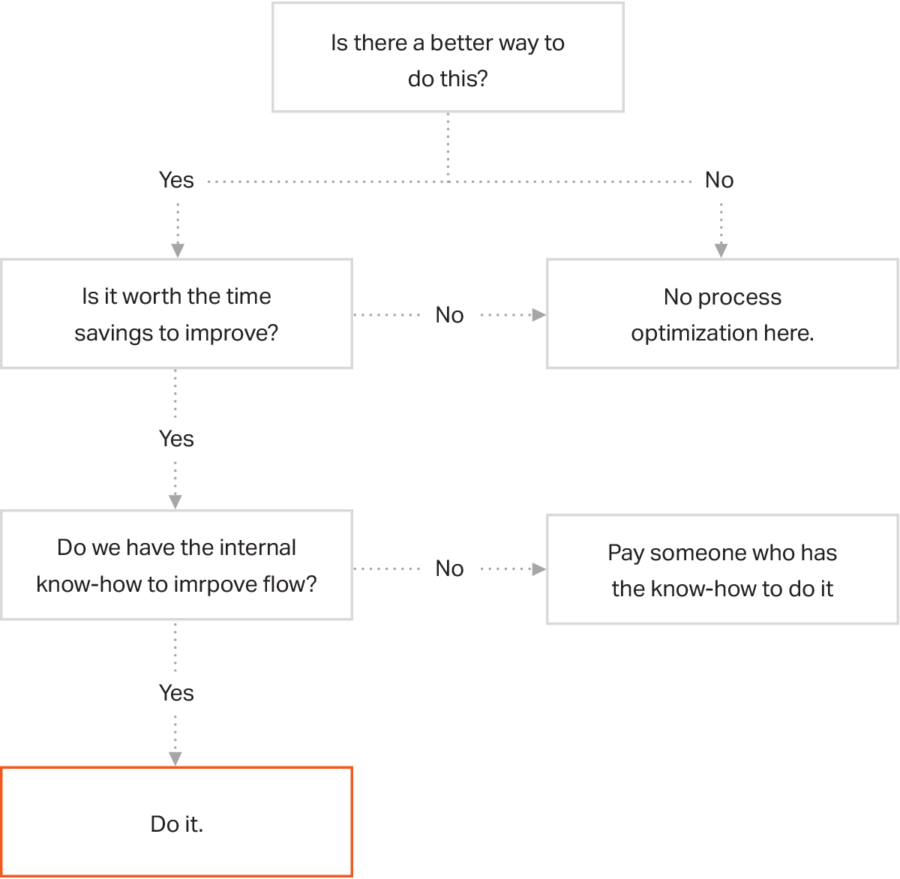In the first post of this series, we unveiled our new Revenue Ops framework – a cross-functional approach to leverage marketing ops and sales ops together with an increased focus on driving revenue.
While we strongly believe in the concept of Revenue Ops as a whole, to fully leverage this model we need to understand what it looks like in practice.

With the help of one of our partners, we outlined the first pillar in this framework focused on Management & Strategy. Next, we’ll look at the second pillar – Process Optimization.
4 questions on Process Optimization with Engagio
After outlining management decisions and planning out strategy, Revenue Ops needs to help define key workflows and execute marketing & sales processes. The goal here is to make go-to-market teams more productive and effective – this can be achieved by finding ways to remove or automate steps, streamline processes, and reduce friction between cross-functional tasks.
In order to fully understand how ops can optimize processes across both the marketing and sales function, we interviewed Charlie Liang, Director of Marketing at Engagio.
1) Why is Process Optimization a core pillar for Revenue Ops teams?
Process optimization is fundamentally important to operations because it’s the definition of good ops. Good process = good ops.
It manifests itself in many forms, but in general, it’s the art of getting rid of excess fat in things that you need to repeat, such as finding your next customer, loading lists from a tradeshow, converting CRM leads to opportunities, or something as simple as bucketing job titles. Truth is, if it saves you time and can get the job done as good or better, it’s good optimizing the process.
2) What kind of processes can help ops practitioners improve their B2B marketing and sales efforts?
Operations professionals should take inventory of how they spend their time and break out activities into two categories: one-time processes and recurring processes. You can certainly optimize both, but in general, you should spend time focusing on improving recurring processes.
There are a few questions to ask yourself when deciding whether or not to try to improve a given process:

Source: Charlie Liang, Engagio, Feb 2017
3) What are some indicators ops can use to define success in their optimization efforts?
When asked to evaluate the team leading the process optimization project, the more you answer yes to the questions below, the more successful the project will be.
Personnel
- Does the person(s) in charge of improving the process have the appropriate domain expertise?
- Is the person(s) leading the project in touch with the right people?
- Do they have clearance + support to work on the given process?
- Can the person or team execute well?
Project
- Are the goals of the project defined clearly?
- Do you have a good way of measuring the success of the project?
- Have there been clear timelines established?
- Does the project have visibility & support from key executives?
4) How do you see Process Optimization affecting ops practitioners in the future?
As long as there are organizations, there will be process improvement. But the failure to continue to streamline processes can be a big risk to companies if they don’t execute well. The larger the company, the more important process optimization is, but also the harder it is.
The larger your company is, the more business processes it has, the more it makes sense to streamline. But no need to reinvent the wheel – many businesses have similar processes, so ask around to see if a solution already exists for what you’re trying to solve. Build things for processes unique to your business – use industry-standard tools and methodologies for all else.
Charlie Liang, Director of Marketing, Engagio
Wrapping it up
Optimizing cross-functional efforts is one of the cornerstones of the ops function. As Charlie mentions, Revenue Ops teams should focus on improving recurring processes, ensuring the right people are leading optimization efforts, and defining KPIs to identify & measure the success of the project.
Business & Finance Articles on Business 2 Community
(86)








